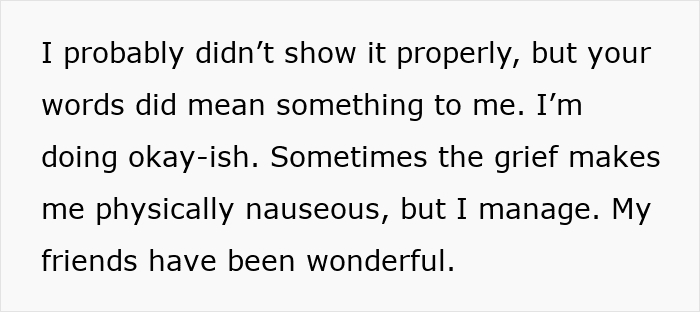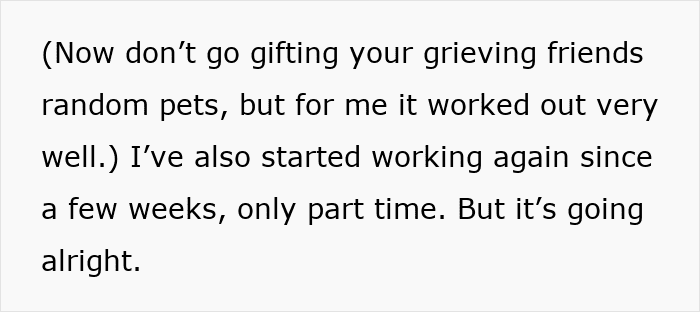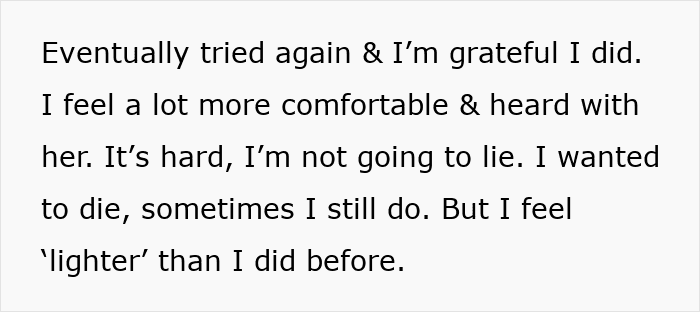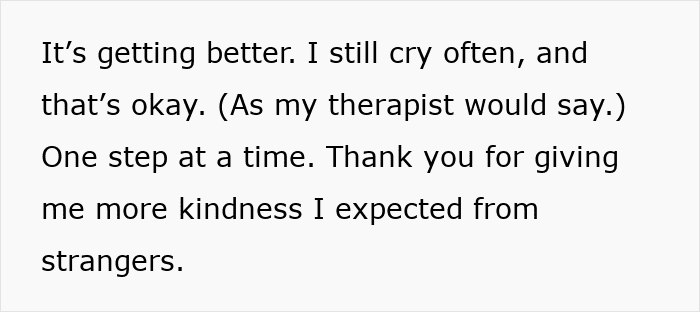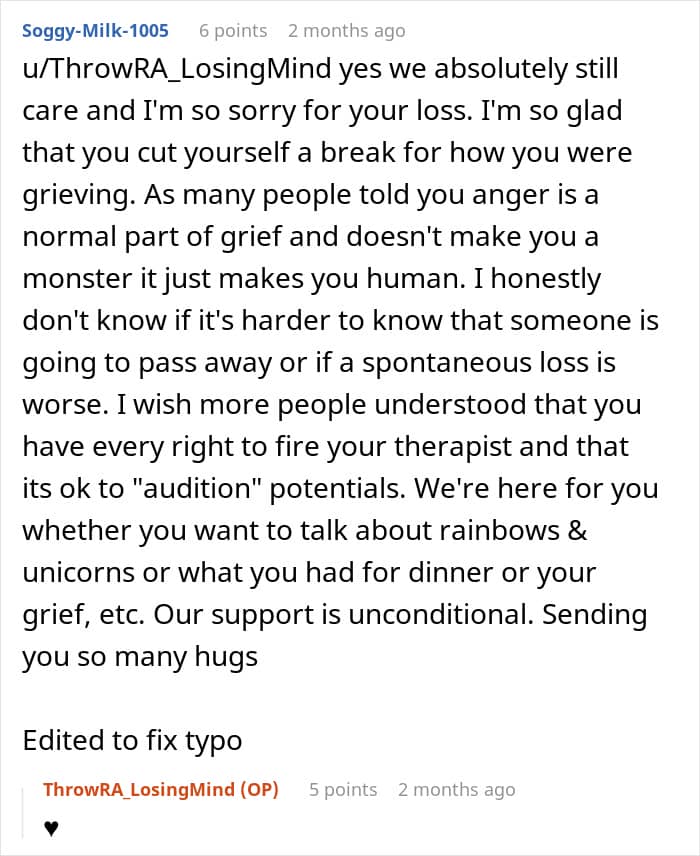When getting married, the husband and wife promise to love each other “in sickness and in health”. Unfortunately, none of us know when the time of sickness may come, and sometimes, it comes in the most confusing, unexpected ways.
For this couple, everything started when the husband began falsely insisting that his wife was pregnant. Rattled by his strange behavior, she didn’t know what to make of it. As the mystery knots in this story untangled, it became clear that a more sinister health condition was behind his erratic behavior. And it all led to an inevitable but heartbreaking conclusion.
We reached out to a certified loss and empowerment coach, Amanda McKoy Flanagan, LMSW. She is also a writing coach, energy healer, and motivational speaker, the author of the award-winning inspirational memoir Trust Yourself to Be All In: Safe to Love and Let Go, and host of the Sol Rising podcast.
She kindly agreed to tell We more about anticipatory grief, whether anger is a natural part of grieving, and why it’s best to feel and ‘make friends’ with that anger during the grieving process.
More info: Amanda McKoy Flanagan | Facebook | Instagram
RELATED:A husband started insisting his wife was pregnant out of nowhere

At first, she didn’t think much of it, but she grew more and more uncomfortable as he wouldn’t stop




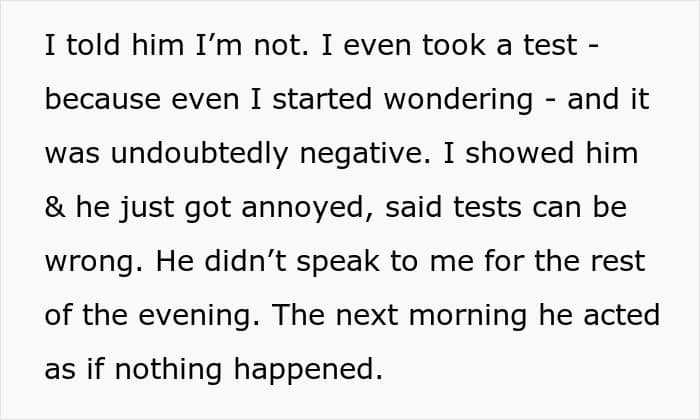









People were speculating whether the husband was just manipulating her or if something more serious was going on













A few days later, the couple got into a huge fight and ended up staying with their parents


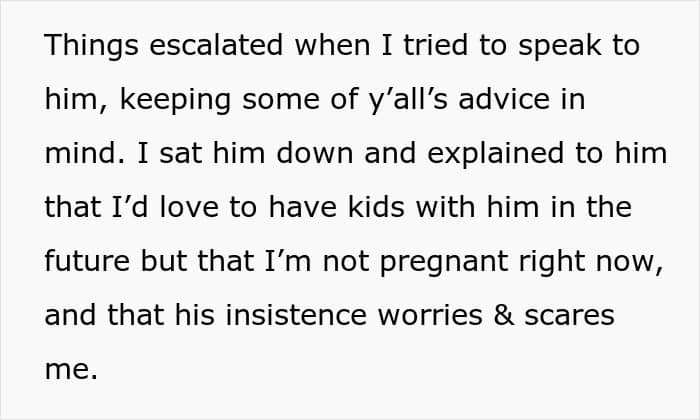










Commenters were glad both of them were safe, but urged the woman to convince her husband to get checked out by a medical professional



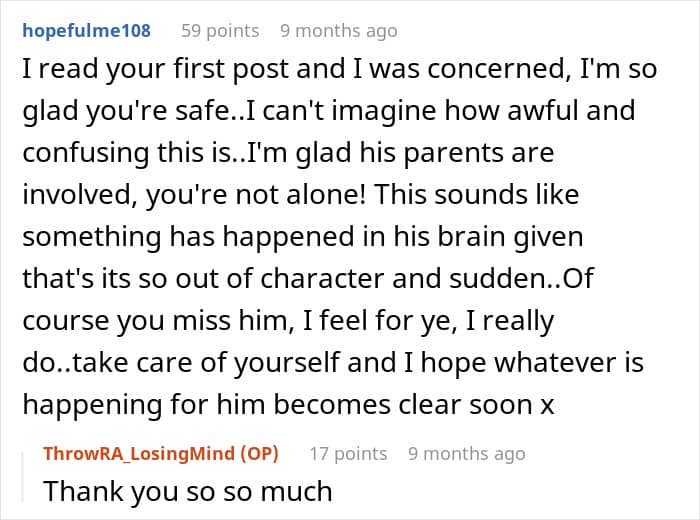
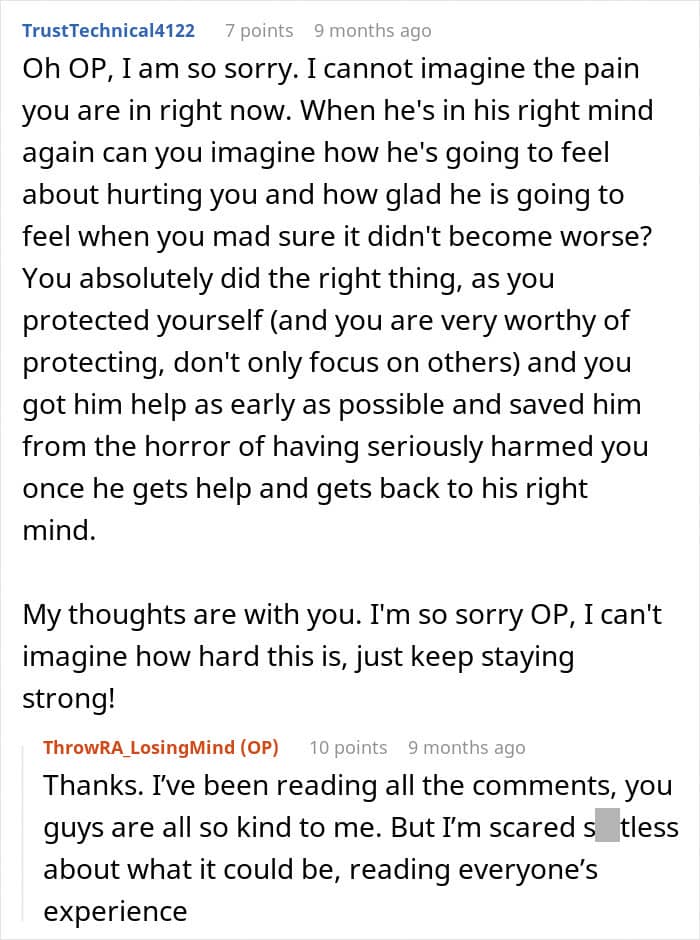






Finally, the family convinced the husband to see a doctor

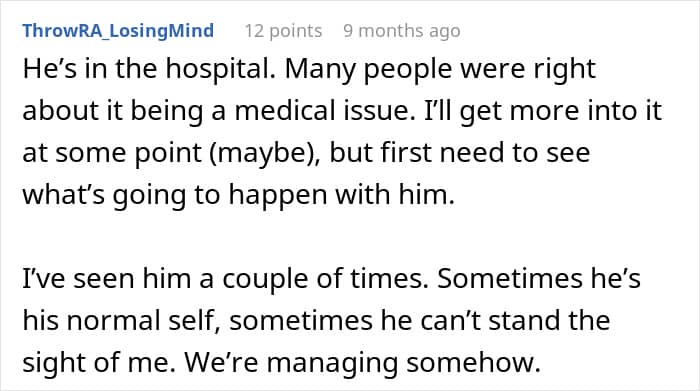
Then the real reason for his strange behavior was revealed: a brain tumor

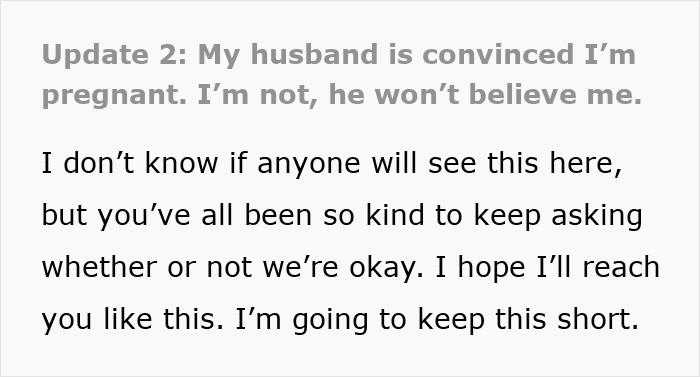
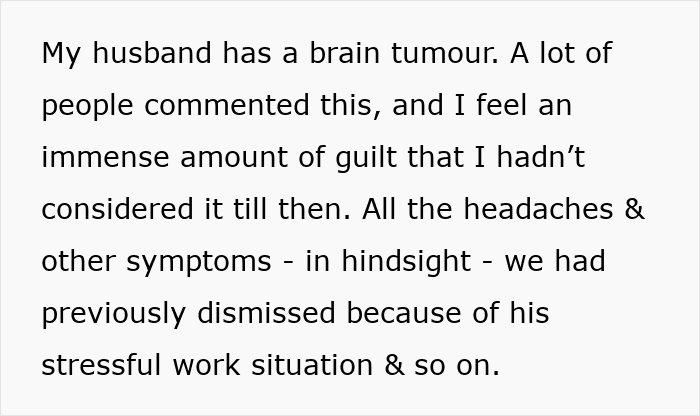

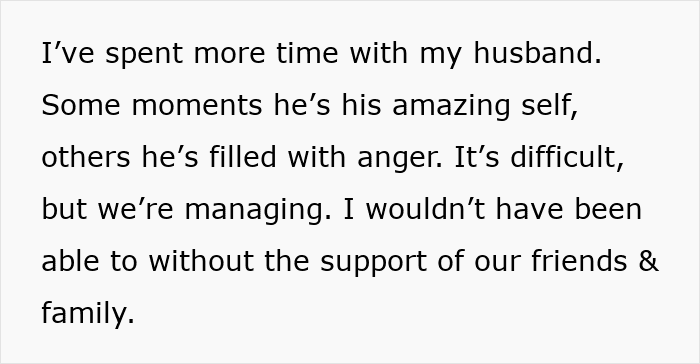

Commenters met the update with an outpouring of support: “Sending internet hugs”




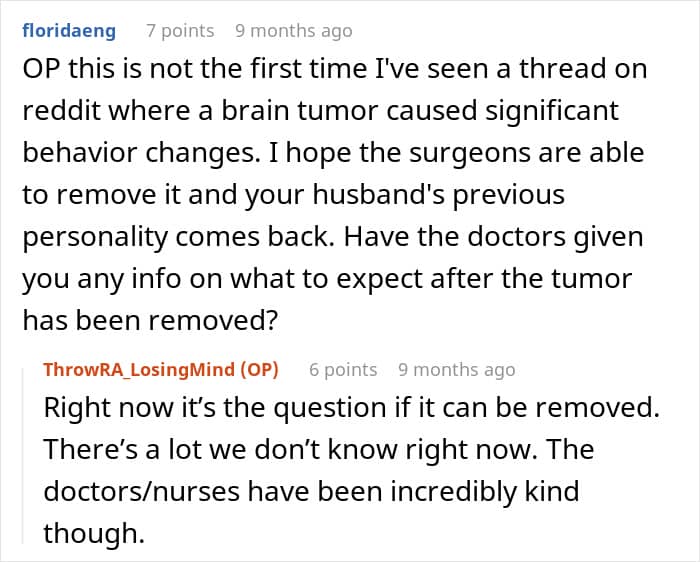

The wife also clarified the exact diagnosis




After the news, the wife shared how heartbroken she was for their robbed future together

Image credits freepik (not the actual photo)




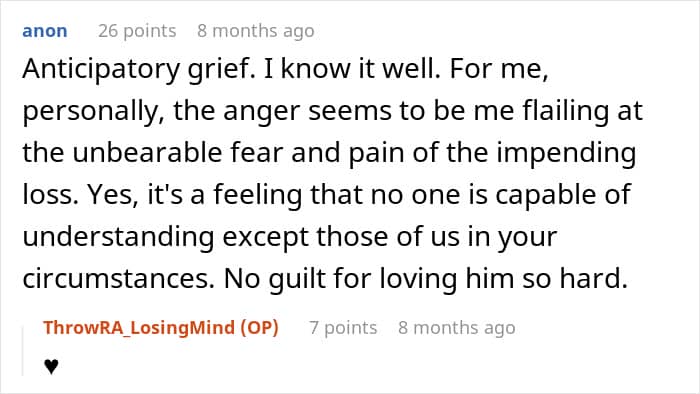
Six weeks after her original post, the wife revealed that her husband’s condition was critical

The wife was experiencing what’s called ‘anticipatory grief’
The news about the woman’s husband’s brain tumor came out of nowhere. What began as a story of confusion and possible manipulation soon turned into a heartbreaking one. The author bravely documented her journey in posts across different subreddits, and after the initial shock of the diagnosis.
As some of the commenters already explained, what she was experiencing was anticipatory grief. Instead of regular grief, this type of bereavement is about what’s yet to come. Grief coach Amanda McKoy Flanagan tells We that anticipatory grief can surface in lots of ways.
“Most of us are living with some form of it, whether we are aware of its manifestation or not and whether the threat of loss is real or perceived,” she notes. McKoy Flanagan says the following are four of the most common situations in which we may experience it:
When a physical death is imminent;When fear of future loss exists without a medical determination;When a significant change might be coming to a relationship with a living person (e.g., divorce);Or when our hopes for a relationship with a parent, child, spouse, or friend get squashed.
“Any major change on the horizon creates anticipatory grief and may present similarly to bereavement,” the grief coach points out.
“Emotions such as anxiety, confusion, frustration, irritability, depression, disorientation, absent-mindedness, despair, and anger are typical with this kind of grief, and are often heightened if one has suffered a previous traumatic loss as fresh loss inevitably kicks up old grief.”



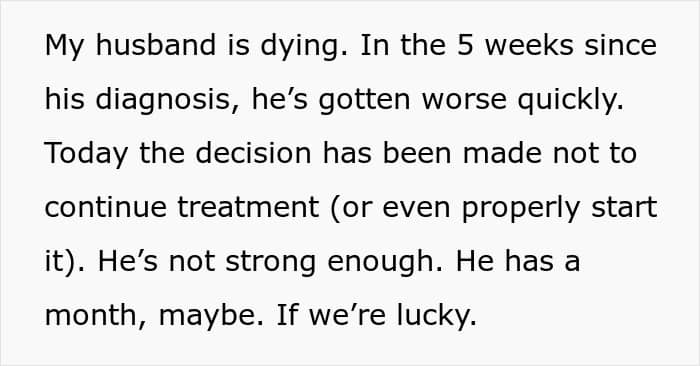


“This woman is not angry at her husband for being ill, she is afraid he is going to die,” loss and empowerment coach says
The wife in the story details how angry she felt at her husband for getting sick and leaving her alone. McKoy Flanagan says that anger is a very natural part of grief. “I say ‘part,’ not ‘stage,’ because contrary to popular belief, there are no stages of grief,” she also notes.
The classic five stages of grief—denial, anger, bargaining, depression, and acceptance—were established by Elizabeth Kübler-Ross. But McKoy Flanagan points out that she was referring to preparing for your own death, not someone else’s.
Still, anger is an emotion a lot of grieving people feel. McKoy Flanagan tells us that it’s also uncontrollable: “It may come and go at will.” Yet she emphasizes fear as the emotion we should be paying attention to.
“Anger is a symptom of fear,” she explains. “If you are angry, the pressing question you should ask yourself is, ‘What am I afraid of?’ This woman is not angry at her husband for being ill, she is afraid he is going to die. We succumb to anger because it is easier to default to than fear.”
“It provides protection, a righteous ego-boost, whereas fear makes us vulnerable, another frightening emotional state to be in: fear on top of fear. Anger also makes us feel in control when we feel helpless. Anger makes us feel safe,” the grief coach explains.
Commenters stood by the woman, sharing similar stories about grief and loss

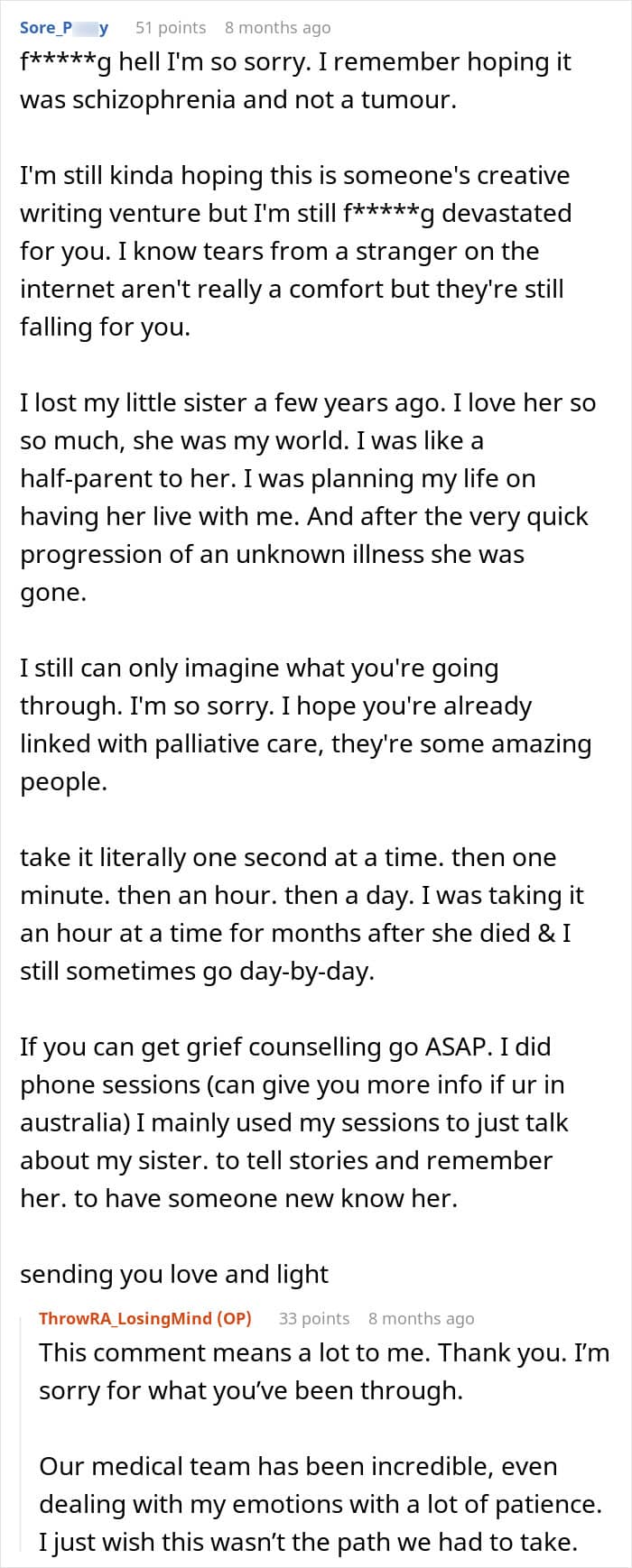

About a month later, the woman shared the news of her husband’s passing
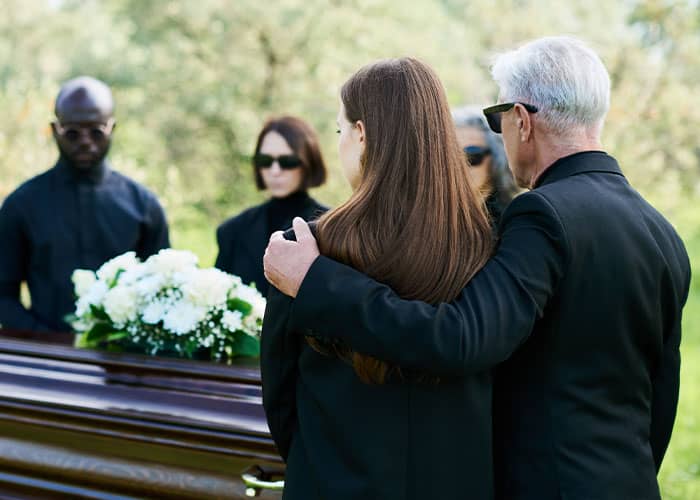


Women often suppress anger, but the grief coach says to “Just let it be. Feel it.”
The wife in this story also admits she feels shame about being angry. McKoy Flanagan says that it might be because women are often conditioned to suppress anger since “Good girls don’t get angry.”
“Women are sweet, kind, and accommodating,” she says. “In a man’s world, an angry woman is a form of rebellion, a message of resistance, a challenge to the current structures.”
“This prevailing ideology that has kept girls and women suppressed and voiceless bleeds into the grief space, and shame is the tool used to keep us in check, to keep us calm, quiet, and compliant.”
The grief coach notes how, for many women, being angry is off-limits. “If we expressed anger as children, our feelings were often invalidated, and shame is a close cousin to invalidation. As a result of this conditioning, our internal policewomen heap shame on ourselves for feeling this very natural emotion, and we keep this secret to ourselves, compounding our shame.”
There’s also a strong message in society to “Never speak ill of the [passed].” Even if we’re angry at a loved one who has passed or is about to pass, we’re not allowed to express the anger and frustration we may feel towards them.
“Some of us have bridged a faulty connection between feeling angry about a death to being angry with a person for dying,” McKoy Flanagan says. “You can feel angry about your loss without blaming someone for the situation.”
“In fact, it’s healthy to feel anger without seeking a place to put it. Just let it be. Feel it. Make friends with your anger without shame or judgment. Then let it go.”
Four months after that, she came back to share how she’s coping with the loss of her husband

